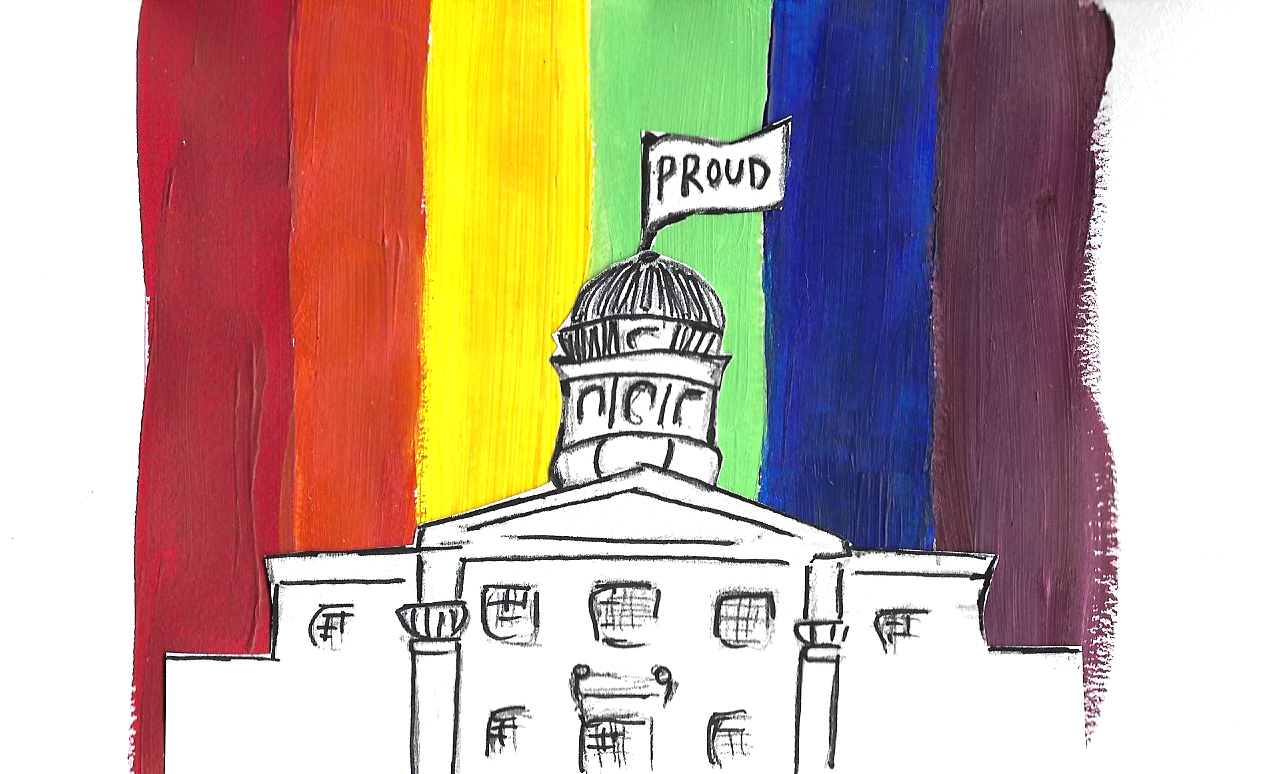October is Queer History Month at McGill, the first event of its kind at a Canadian university. It aims to explore and expand on the boundaries of heteronormativity through educational initiatives and celebrations: A four-week tangle in the complex web of queer identity.
I came into my own sexuality with an unusual sense of animosity toward events like pride parades and queer history months. My identity felt pigeonholed by events like pride, walled in by the confines of what constitutes ‘gay pride’.
I’m gay. At least, I think I am. I’ll say queer for now—I’m young. I haven’t told my parents. They are two of the most loving and accepting people I have ever met, but I never got around to telling them. I assume they know: We fly a pride flag on our deck year-round. I probably would have taken it down myself were I three or four years younger and carrying the same weight of self-doubt and anxiety.
I am forever conscious of being ‘gay enough,’ a phrase that I drag around like a ball-and-chain of internal insecurities. When I came out to my best friend in eighth grade, she didn’t believe me. It seemed that all the boys around me neatly fit into a category, while I was neither gay enough, masculine enough, nor proud enough. But it got easier. I kissed a boy; I gossiped about crushes with the girls in my English class; I watched Brokeback Mountain in my room by myself. I developed little ‘tells’ over time. I don’t know if they came naturally, but I started to fit the bill. I even internally rejoiced when one of my roommates told me that he got a specific ‘vibe’ from me during the first few days of our living together. I felt victorious, like I had finally found the proof I was looking for.
There seems to be a stale cultural attitude toward LGBTQ+ expression. I used to experience mass queer pride as focused entirely on the grandeur of celebration, ignoring the larger reasons for why such a month is necessary. It felt like too commercialized a festivity—a mass-produced bastardization of an existing cultural identity. In trying to elevate the queer community, those on its outskirts fall to the wayside.
Celebrations of queer pride need to ground themselves in history, especially in Montreal. 75 per cent of Montreal’s LGBTQ+ community experience bullying for their sexuality; the Sex Garage riots are a lasting stain on the city’s acceptance of the queer identity. Recognition of Montreal’s checkered history of queerness means not only celebrating, but also informing and including.
McGill would need 10 more queer history month celebrations to fully capture the queer community’s rich and diverse culture. So, I’m taking this time to recognize the shapes, voices, faces, feelings, and experiences of this rich and diverse community; but, also, to take a step back, to take time and let queerness be. Too often, the queer identity is walled in; too often, queerness is reduced to a TV segment about a pride parade or rainbow face-paint on cheekbones. This is a disservice to its diversity. This October, let those exploring their own identities come forward and share what they will. I’m taking a break from asking questions; I’m putting on my rainbow underwear and smiling at everyone I see on the sidewalk.









